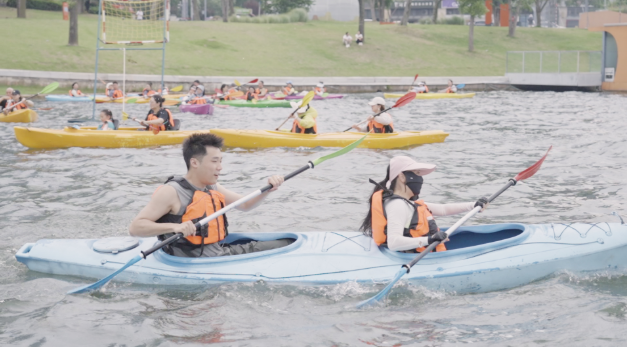
Cai Jinqiu Photo/Wang Haoyi (NBD)
Water sports like canoeing and rowing are gaining traction in China. At the Chengdu World Games, the Canoe Marathon drew significant public interest, reflecting a broader trend. Meituan data shows searches for "kayak experience" jumped over 125% in June, highlighting a surge in demand for water-based leisure, equipment, and coaching.
"Water sports are on the rise," says Cai Jinqiu, CEO of Golden Panda International Rowing Club. "They require specialized resources: quality water bodies, proper gear, and expert coaches."
From Team Building to Business Strategy

Photo/Provided to NBD
Rowing, originating in Britain, is a powerful metaphor for corporate teamwork. "It's a sport without individual heroes," Cai explains, echoing Vanke founder Wang Shi's philosophy. "It's about letting go of ego. Like managing a company, leaders must redefine their role while team members practice empathy and cooperation."
While rowing requires extensive training, kayaking is more accessible, making it a popular choice for corporate team-building events. These activities highlight how teamwork, synchronization, and control are essential for success, mirroring the skills needed to navigate the complexities of the business world.
Challenges and Growth
Despite their growing popularity, water sports still lag behind land-based activities, with a 28% national participation rate compared to 99% for land sports. This is largely due to the high cost of equipment and the need for suitable water bodies. A single rowing boat can cost over 200,000 yuan, and clubs require significant investment.
Coastal regions like the Yangtze and Pearl River Deltas lead the way, with Zhejiang producing over 60% of China's kayaks and rowing boats. However, inland cities are also making progress. Chengdu's Xinglong Lake was recently named a National Water Recreation Sports Center, signaling a bright future for water sports across the country.


 川公网安备 51019002001991号
川公网安备 51019002001991号





